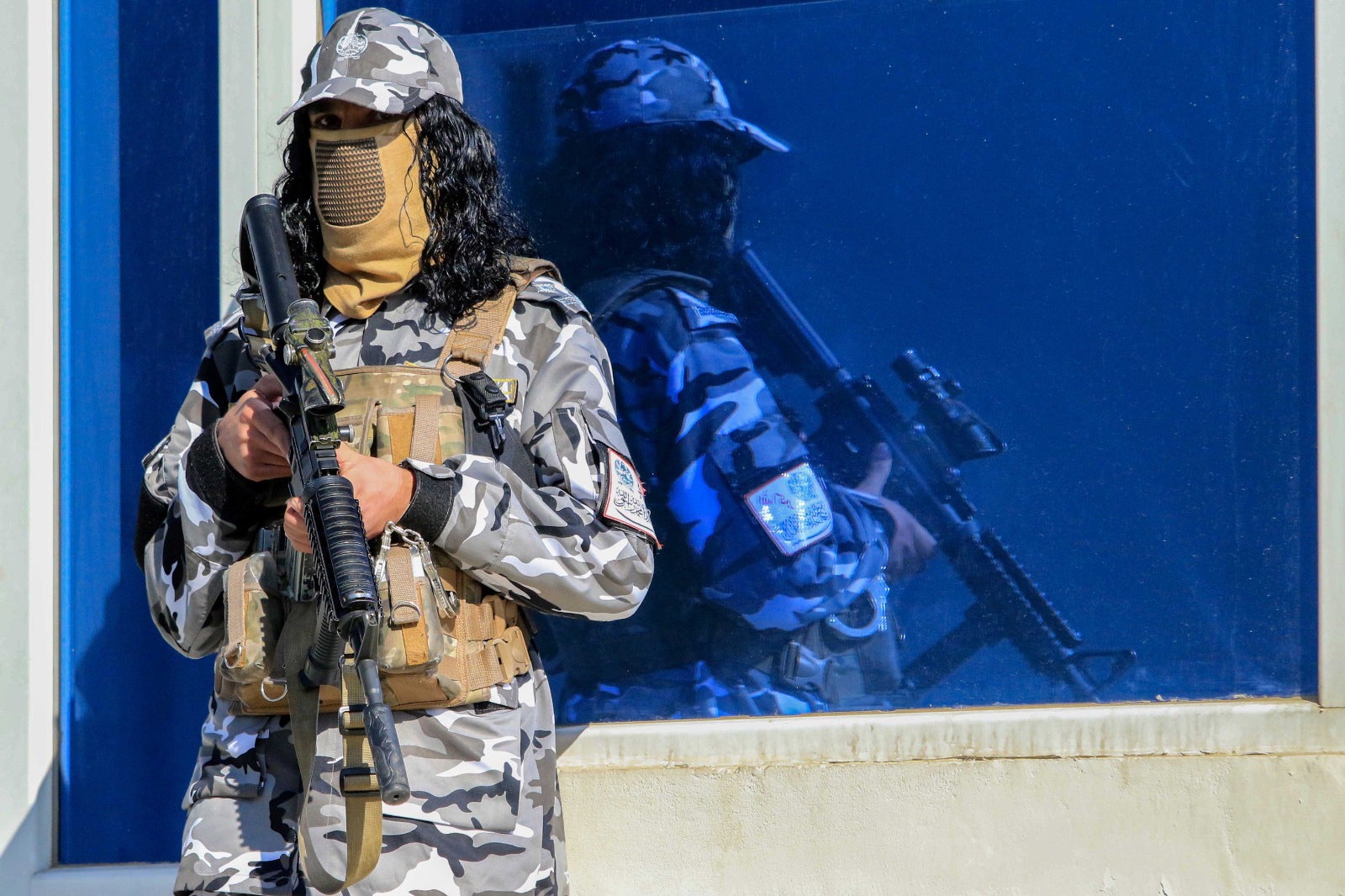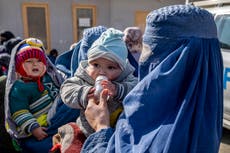Taliban ban on female aid workers means women and children deprived of ‘life-saving aid’
‘Children are struggling to survive a freezing, miserable winter. Some are dying as temperatures plummet well below -20 degrees celsius,’ humanitarian director says

Your support helps us to tell the story
From reproductive rights to climate change to Big Tech, The Independent is on the ground when the story is developing. Whether it's investigating the financials of Elon Musk's pro-Trump PAC or producing our latest documentary, 'The A Word', which shines a light on the American women fighting for reproductive rights, we know how important it is to parse out the facts from the messaging.
At such a critical moment in US history, we need reporters on the ground. Your donation allows us to keep sending journalists to speak to both sides of the story.
The Independent is trusted by Americans across the entire political spectrum. And unlike many other quality news outlets, we choose not to lock Americans out of our reporting and analysis with paywalls. We believe quality journalism should be available to everyone, paid for by those who can afford it.
Your support makes all the difference.The Taliban’s ban on female aid workers means Afghan women and children are being deprived of life-saving help during the country’s starkest hunger crisis in history, campaigners have warned.
On Christmas Eve, the Taliban banned aid groups from hiring women in a shock move which halted aid that keeps millions of Afghans from dying.
Women have reported being barred from accessing aid as well as routinely neglected by male-only humanitarian teams due to not having a male relative to collect aid.
David Wright, chief operating officer at Save the Children, warned both the “scale and severity” of the humanitarian crisis gripping Afghanistan is “like nothing” he had ever witnessed previously.
He added: “Almost 20 million children and adults are facing extreme hunger. Many families now survive only on bread and water for weeks at a time.
“Children are struggling to survive a freezing, miserable winter. Some are dying as temperatures plummet well below -20 degrees celsius. Heating homes is out of the question for ordinary families and parents cannot even afford blankets or warm winter clothes.
“The ban on female NGO workers is only driving up the needs of women and children. We’ve said right from the start that women are essential for aid delivery and that without them millions of women and children will be cut off from life-saving aid.”
Mr Wright warned their “worst fears are now being confirmed” as he urged the Taliban to wholly overhaul the ban and permit NGOs to “fully resume activities with female and male staff”.
“We also call on all humanitarian agencies in Afghanistan to ensure all activities are conducted with female and male teams, and urge donor countries to refrain from any commitments to reduce or freeze much needed flexible funding for Afghanistan,” he added.
“This is not the time for the international community, and donor governments in particular, to turn their backs on Afghanistan.”
New research conducted by UN Women found 93 per cent of organisations working in Afghanistan they polled report the Taliban’s ban is impeding delivering humanitarian aid to women.
The Taliban has escalated restrictions since seizing power of the Afghan capital, Kabul, in mid-August 2021 as US and British forces withdrew. The hardline Islamist group, which previously ruled the country, has blocked women from the workplace and education and barred them from taking part in all sports. While women have also been banned from gyms and public spaces.
Seima*, a young mother-of-four whose husband died from coronavirus two years ago, said: “Humanitarian aid is now mainly delivered by men.
“If we go and ask for assistance, community elders ask us to send a man to collect the aid. They won’t let us take it because we are women. I don’t know why they won’t give us the aid. We have tried several times.”
The 26-year-old was left with no mahram or male guardian to accompany her when she goes outside the house - a rule the Taliban has now extensively imposed.
Seima* said: “If there are only male aid workers, they will not understand how we suffer, and they will not be allowed to come to our homes and see how we are suffering.
“And we won’t be able to receive the assistance. If they’re not aware of our situation, we won’t be added to the [aid distribution] lists.
“I cannot share my story with men. It’s very hard. Men cannot solve all problems.”
Save the Children said they were forced to bring their activities to a standstill in the wake of the Taliban’s ban on female aid workers due to women staff being “essential for the safe and effective delivery of services” as well as “crucial for reaching women and girls”.
The charity noted women make up nearly half of their workers in Afghanistan - adding other organisations also halted work after the ban was imposed.
Save the Children said they have been able to resume some activity in instances where they have been notified female staff can work without facing danger but explained more than half of the charity’s operations remain paused.
Campaigners at the organisation warned women and children are being hardest hit by the crisis engulfing the country as households run by women are coping on much less money than those with men at the helm.
Every two in three people living in Afghanistan – which amounts to 28 million children and adults – requires urgent humanitarian aid to subsist, the charity said.






Join our commenting forum
Join thought-provoking conversations, follow other Independent readers and see their replies
Comments